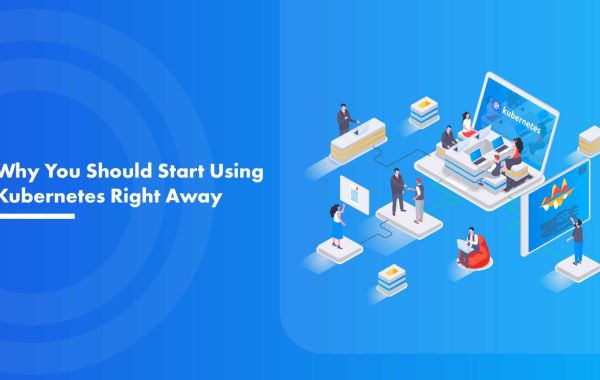The best Kubernetes architecture for your business depends on your needs and goals, and especially a good Kubernetes Consulting provider. Kubernetes is often referred to as a cloud-native technology and certainly qualifies as such. However, the cloud-native concept does not rule out the use of on-premises infrastructure where it makes sense. Depending on your organization's compliance requirements, location, and the cost of running your workloads, running Kubernetes.
Deployments on-premises can offer significant benefits
Kubernetes has achieved an unprecedented rate of adoption, in part because it greatly simplifies the deployment and management of microservices.
Almost equally important, it allows users who cannot use the public cloud to work in a "cloud-like" environment. It does this by decoupling dependencies and abstracting infrastructure from your application stack, giving you the portability and scalability associated with cloud-native applications. Hubs compared to the relative "Easy Ride" with public cloud providers? In general, there are a few key reasons why an organization might decide to invest in an on-premises Kubernetes strategy:
- Privacy and Compliance
Some organizations simply cannot use the public cloud due to strict privacy and compliance regulations.
For example, GDPR compliance rules may prevent companies from serving customers in the European region with services hosted on certain public clouds.
- Reasons for the business policy requirements
Factors such as the need to run your workloads in specific geographic locations can make public clouds difficult to use. Some companies may not be able to take advantage of a particular cloud provider's public cloud offerings due to their competitive business policies.
- Be cloud agnostic to avoid lock-in
Many organizations may not want to be tested with a single cloud provider and as such may want to deploy their applications across multiple clouds, including an on-premises private cloud. This reduces your risk of business continuity impacts due to issues with a particular cloud provider. You also have an influence on the price negotiations with your cloud providers.
- Cost Effective
This is probably the number one reason to run Kubernetes on-premises as advised by many cloud consulting experts. Running all your applications on public clouds can get quite expensive at scale. Especially when your applications rely on ingesting and processing large amounts of data, such as for example, an AI/ML application can be extremely expensive to run on a public cloud. If you have existing data centers on-premises or in a co-hosted facility, running Kubernetes on-premises can be an effective way to reduce your operational costs. Because this shift happens later in a company’s life, it's far tough to the opposite as it’s an end result of years of improvement targeted on new features, and now no longer infrastructure optimization”
A powerful method to run Kubernetes on-premises through your very own statistics facilities may be used to remodel your business and modernize your programs for cloud-native – even as enhancing infrastructure usage and saving prices equal time.
Final Verdict
The on-premise data centers can get many benefits from the infrastructure and cloud-native applications with the help of Kubernetes. Be it VMware vSphere, KVM, OpenStack, etc, they can still get many different cloud-native benefits with the integration of Kubernetes.








